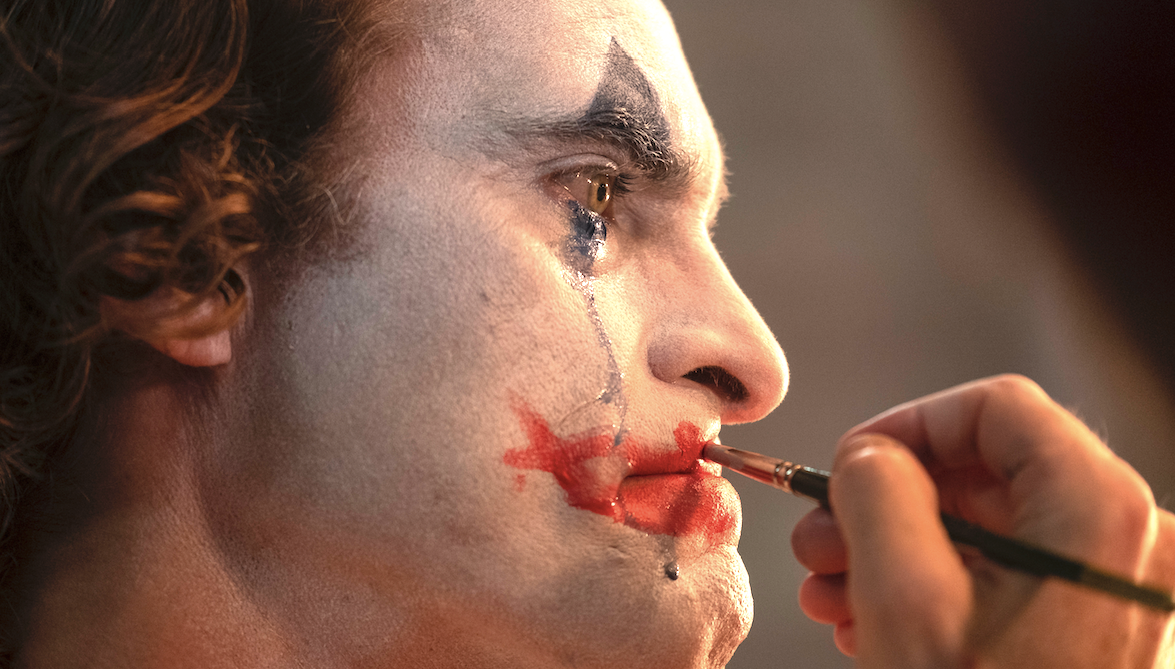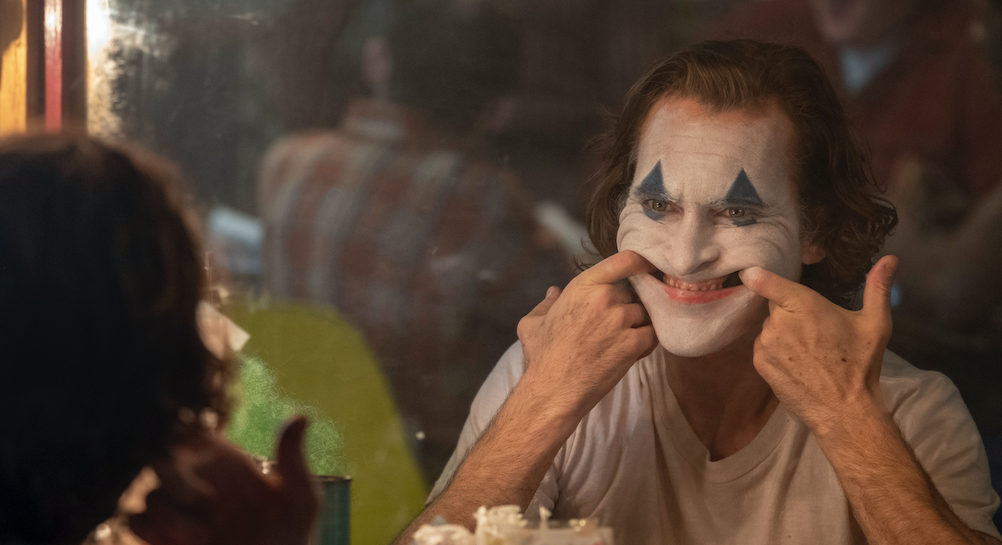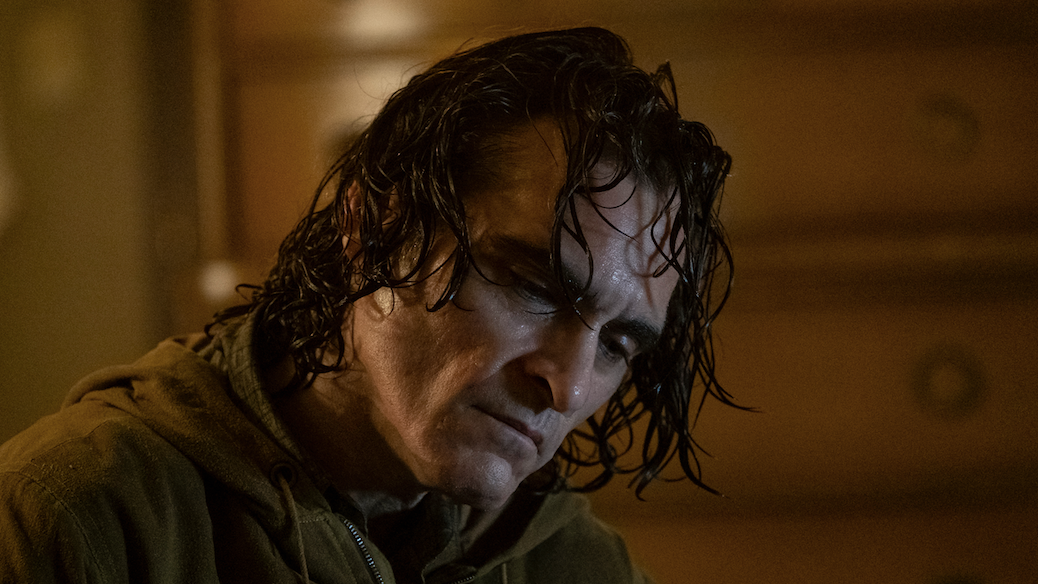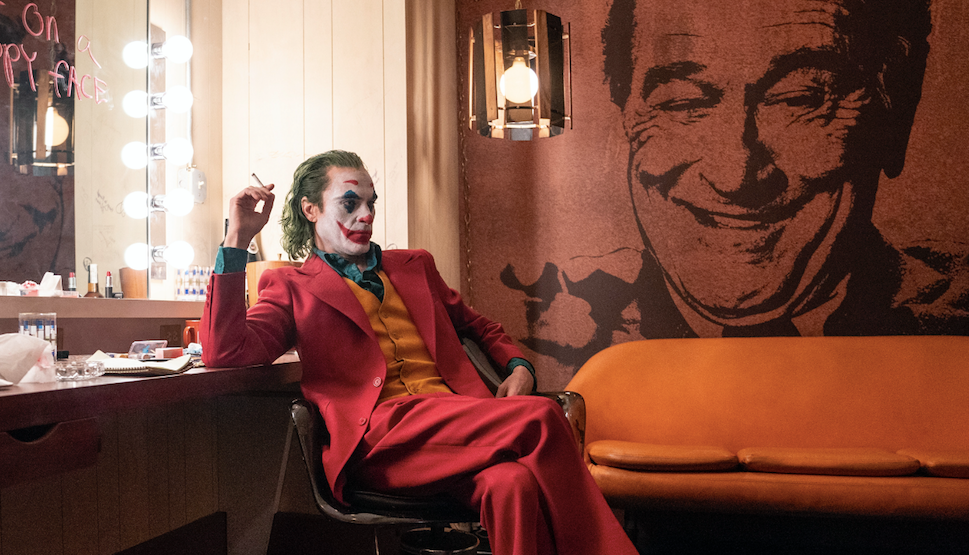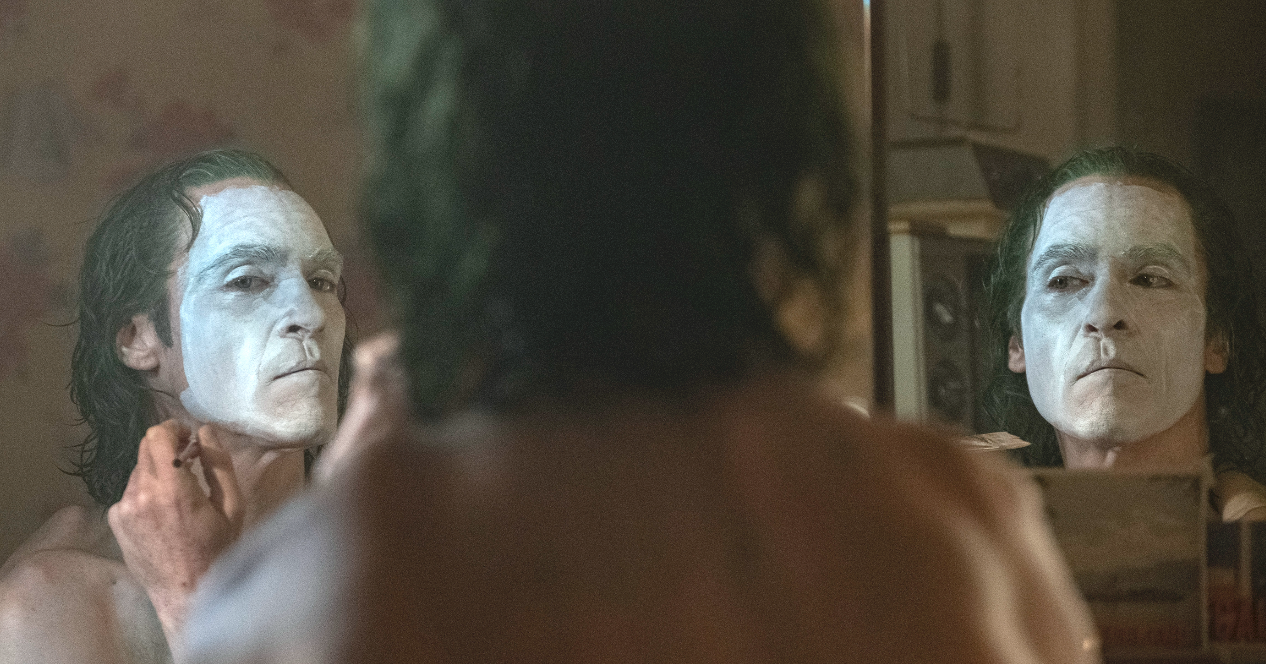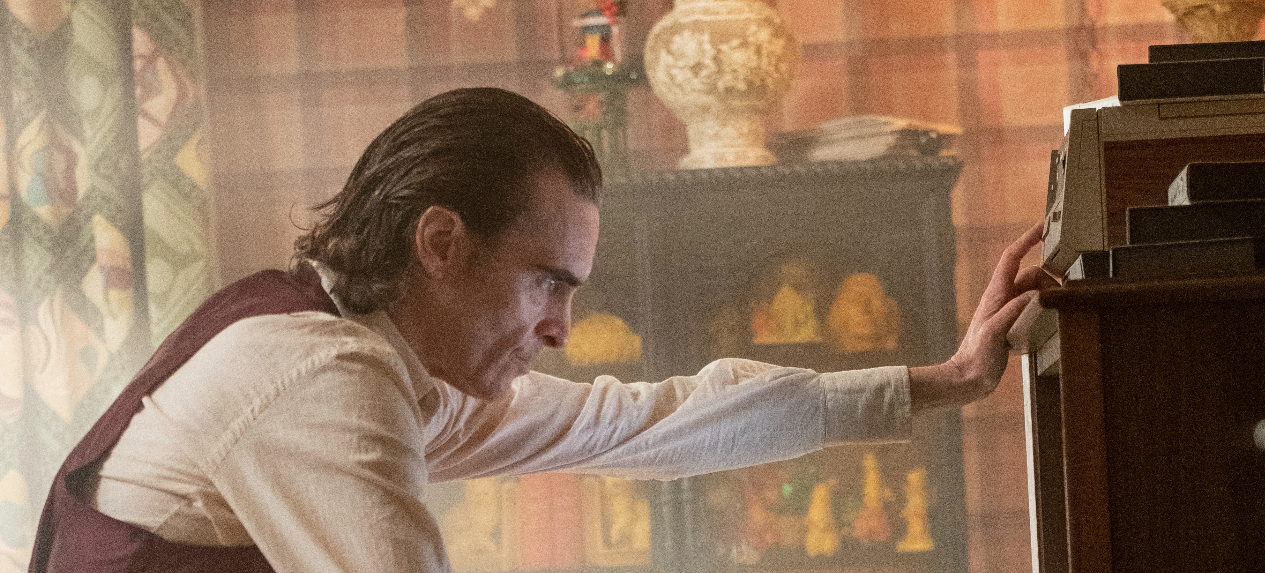Why The Joker Movie Feels Dangerous
GameSpot may receive revenue from affiliate and advertising partnerships for sharing this content and from purchases through links.
Warning: Joker spoilers ahead.
The Joker movie is finally here, and all the fans, critics, and haters can go see for themselves whether it lives up to the hype. It's on pace to set box office records, but no matter how you feel about the movie itself, there's no denying that it's been steeped in controversy.
The conversation around Joker has been building for months, with commentators on multiple sides arguing about whether it's a masterpiece of fine cinema and a new bar for comic book movies, or an irresponsible portrayal of violence and mental illness, and a misguided love letter to disenfranchised trolls.
Here at GameSpot, we have some different opinions--so entertainment team members Mike Rougeau and Meg Downey sat down to have a chat about why Joker feels so dangerous right now. That conversation is presented in full below.
Warning: There are spoilers for Joker below.
Mike Rougeau:
Hey Meg. So I know our opinions about this movie differ a lot in general. That doesn't surprise me at all--I think it's going to be incredibly divisive. Some people will love it like I did, and some people will hate it, for a huge variety of reasons.
But what I specifically wanted to have a conversation with you about is why this movie feels so "dangerous." Why are people suddenly so worried about the on-screen violence? We had John Wick 3 earlier this year, with an exponentially larger body count than this movie. Why are people worried about the politics of this movie? Films often present controversial viewpoints without critics and commentators getting so twisted up about it. What do you think it is about this movie, character, actor, director, or whatever else that feels different?
Meg Downey:
I think the danger, if you could really call it that--maybe "irresponsibility" is better--here isn't in the content itself but the way the content is presented. Joker, to me, reads and feels exactly like a very deliberately bad faith argument. It's presenting this thesis on violence in society that is simultaneously about the dangers of plutocracy and about the dangers of inspiring the unwashed masses to rise up, and in doing both it creates this ultimately muddled message that doesn't really say anything or mean anything, but can be very, very easily co-opted by either side, which is where the risk comes in. You can use this as a text to say that protesting the rich and rallying against establishment is a slippery slope into public executions and riots in the streets. You can use this as a text to say that it's our god given responsibility to inspire the revolution, no matter how bloody it may be, because the plutocracy will never help us. Movies like John Wick or say, Mission Impossible, or anything in the MCU, no matter how high a body count they rack up, don't live in that proverbial no man's land. Every movie has a message and sure, I don't agree with every message put forth in every Marvel movie or whatever, but at least they don't try and have their cake while eating it too so nakedly.
You can have violence and incredibly politicized messages in movies, absolutely, but they just need to be handled in a responsible way with a clear perspective. Joker doesn't have that. Joker has the same sort of smarmy self-congratulatory sensibilities of a reply guy on Twitter--or, worse, the old school 4chan troll logic that says upsetting people is the greatest and most powerful thing you can do. It doesn't matter how you do it, or if you have any sort of real conviction in the things you're saying--the fact that you got a strong reaction means more than anything else. If you don't like it, you just didn't "get it," nevermind that there really isn't anything to get.
I don't think this movie is going to cause some giant apocalypse of radicalized incels or anything like that, but I do think that it's going to occupy a really horrible space in the annals of pop culture now, which in and of itself isn't that big of a deal--but I think now, in 2019, when people are looking to pop culture more than ever as a sort of lexicon to talk about and relate to the world around them, that's a specifically bad call.
Mike:
I don't disagree with you, to be honest. But I think the main way I interpreted the movie was as a validation of the anger that people feel about the injustices in society in general. Which is kind of what Joker is often about as a character? The movie isn't saying either of the extremes--the "you have to rise up" or the "violence is a slippery slope" arguments. It's simply saying, "This is what happens." It's Arthur's monologue on the talk show at the end--"This is what happens when you cross a mentally ill person with a society that treats him like dirt" (I'm paraphrasing). Which I think is accurate in a very literal sense--we know this is what happens, because it's 2019, there's a shooting seemingly every other week, and it is happening. Maybe that's an irresponsible thing to show--but it also feels true to me. It's an accurate depiction of one small facet of this massive problem we face in 2019, through the lens of a comic book supervillain in a fictional place that somewhat resembles our reality. Will it cause real world violence? I don't know. Did Taxi Driver cause would-be vigilantes to go out and start murdering pimps?
But on that, we agree--Joker isn't going to start the incel apocalypse (great band name btw). My follow-up question for you is, what else could a Joker movie be about? Is there any version of this in a parallel universe somewhere with a message that boils down to something other than "We live in a society"?
Meg:
I'm not sure it's an accurate depiction, because I don't know if the movie ever actually commits to making Arthur a character. I left the theater feeling like I knew absolutely nothing about him beyond the very shaky exposition of some pilfered medical records--but even then, it was immediately established that nothing on we saw from Arthur's perspective is really reliable. So, taking what we can take as givens--he's a guy who wants to become a comedian, he has some sort of mental health issue, he was in Arkham at one point for some reason, and social services are not helping him. That's all well and good, and sure, it's also got some sort of authenticity since that's obviously the sort of thing you can hear on the news any given day about something horrible happening. But it doesn't feel particularly impactful in this context.
But to your point and your question, I think the fact that this is a Joker movie is really the root of the problem. It would have been an effective examination of a real world problem, and maybe even felt like it had something more to say than "we live in a society" if it had been about a character we actually got to learn about and connect to in a meaningful way. The Joker is not a character we get to do that with--that's by design, it's baked right into his DNA. I honestly don't know if there's a responsible way to make a Joker movie in 2019--there probably is, but it would require a way stronger sense of conviction than Todd Phillips has to offer.
Mike:
That aspect has been part of the overall discussion--what if this movie had nothing to do with DC comics, and was simply called "Arthur"? Would it have sidestepped a lot of these issues? I don't know the answer, but I agree with Todd Phillips' assessment: Nobody would have cared about a movie called Arthur. I think that's both 100% cynical and 100% true. People are taking issue with his statements about "sneaking in a real movie under the guise of a comic book movie," because it's insulting to comic book movies. I think his phrasing sucks, but I also think he's right. He's using "real movies" as shorthand for "the kinds of serious films I grew up watching, which largely don't get made anymore."
I believe Phillips when he essentially says he used Joker as a Trojan horse to get his version of a Scorsese film through Warner Bros. When I spoke with him recently, he said he's only a passing fan of comics--as in, he read them as a kid, but isn't up to date. He admitted he didn't know what Elseworlds was before Geoff Johns brought it up with him in conversation. This may sound like a negative, but it's part of what I appreciate about this movie: It feels like it's from an alternate universe in which toxic comic book subcultures like those that worship Joker's commitment to chaotic evil don't exist. In Todd Phillips' world, the Joker is just a cool Batman villain, without any of that baggage, and this is one particular version of his origin story, done in a very specific style paying homage to a different era of filmmaking. Is it irresponsible or even impossible to simply enjoy it for that?
Meg:
I totally understand what Phillips is trying to do--and honestly, I think it's clever, and a good idea for comic book movies moving forward. But I think Joker, specifically, as the conduit for that Trojan horse gambit is where things start to break down. There are plenty of big name DC characters with gleefully ambiguous morality, plenty of villains with dubious mental health, and tons of characters that could be spun up to fit the role as it's laid out in this movie that don't also carry with them the baggage and the weight of a character like Joker. Hell, this movie could have been focused on basically any Batman villain in one way or another and told fundamentally the same story with only really surface level adjustments. But I don't think Phillips wanted any Batman villain--he may not be a comic book fan, but I think he knew exactly what he was doing when he picked this character, clearly not because he wanted to make a big meaningful statement, but because he wanted to evoke the danger and irresponsibility that we're talking about right now.
That's not to say that Joker is somehow this untouchable thing in the pantheon of comic book characters, of course. It's just that these stories don't happen in a vacuum. Joker is a character with a very pointed cultural past with regard to real-life violence in living memory, and that should be understood and handled with at least some semblance of care and scrutiny. Instead, what we're left with is Phillips carelessly lobbing a grenade over his shoulder and walking away [Editor's note: That's a very Joker thing to do], which is why it just feels bad.
Even so, I don't know if it's necessarily irresponsible to enjoy it for being what it is--at the end of the day, the movie exists, it happened, it's done, it's better to engage with it than to just pretend it didn't happen, right? But I think that it's our job now, as consumers, to be responsible where Philips was careless, even if just means having conversations like this about where this movie fits into the zeitgeist.
